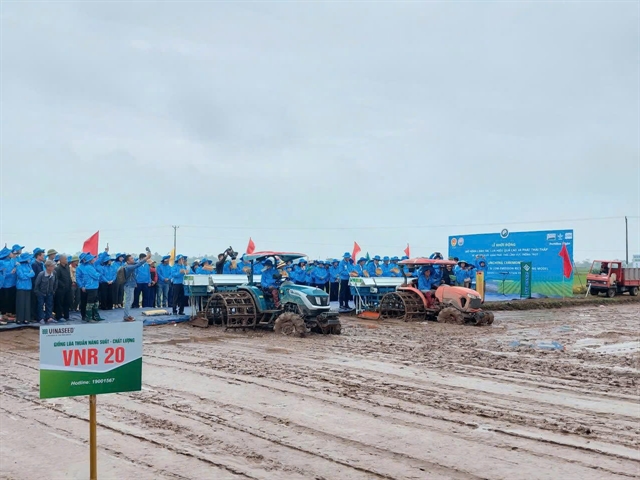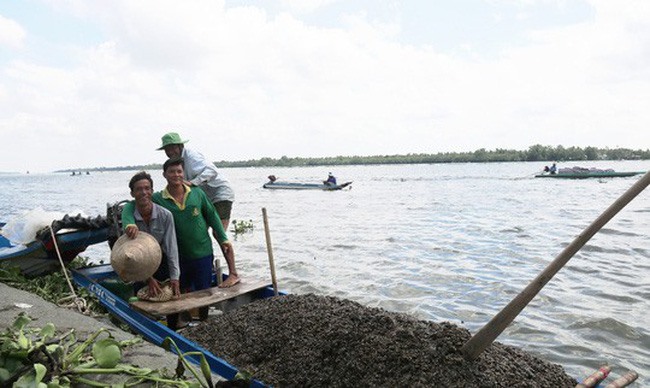 Environment
Environment

The Cái Lớn – Cái Bé irrigation project, which will connect the Cái Lớn River to Cái Bé River in the Mekong Delta region, faces opposition from scientists.
 |
| The Cái Lớn – Cái Bé irrigation project, which will connect the Cái Lớn River to Cái Bé River in the Mekong Delta region, faces opposition from scientists.—Photo vtv.vn |
HCM CITY — The Cái Lớn – Cái Bé irrigation project, which will connect the Cái Lớn River to Cái Bé River in the Mekong Delta region, faces opposition from scientists.
The project aims to control salinity, adapt to climate change, increase flood drainage, improve acid soil and develop waterway transport. It is expected to cost around VNĐ3.3 trillion (US$145 million).
However, an independent Mekong Delta scientist group warned that it would cause “negative environmental consequences for a large region west of the Hậu River, and is not necessary to build.”
Speaking at a conference held on September 7, Professor Lê Anh Tuấn from Cần Thơ University, a member of the group, said: “The biodiversity of the region would be fully destroyed.”
Nguyễn Hữu Thiện, a Mekong Delta ecological independent expert, pointed out that the project’s Environmental Impact Assessment Report had not been completed.
“The Ministry of Planning and Investment is implementing the master plan for the Mekong Delta, while the Ministry of Agriculture and Rural Development is building a new strategy to adapt to climate change. Why doesn’t the project wait for the new master plan and new strategy?” he asked.
Professor Nguyễn Ngọc Trân, former head of the Steering Committee for Freshwater Research in Cà Mau peninsula, said: “We failed to bring freshwater for the Cà Mau peninsula and we did not identify the reason. We should not repeat the failure again with the Cái Lớn – Cái Bé irrigation project.”
“We are living in a land with a diverse ecosystem, but we are trying to simplify it. We have many different agricultural specialties, but we are only focusing on rice and shrimp,” he said.
Professor Nguyễn Tất Đắc from the Southern Institute of Water Resource Research said that the Cà Mau peninsula has more than 100 irrigation gates that play a significant role in the water cycle in the region.
“Irrigation gates at the Hậu River from Sóc Trăng Province to Cà Mau Province are now full, and now it is important to properly operate the system to stop saline water and receive freshwater,” he said.
Local authorities of Hậu Giang and Kiên Giang provinces support the irrigation project because it is part of their development plan for the area.
Nguyễn Văn Đồng, director of the Agriculture and Rural Development Department of Hậu Giang Province, said: “Hậu Giang Province is poor because of a mixture between freshwater and saline water. We would like to stop the situation and have either all saline water or all fresh water.”
“We have been waiting for the project for 10 years,” he added.
Nguyễn Hoàng Thăng, vice chairman of the Kiên Giang Province’s People’s Council, said that in U Minh Thượng District, where the Cái Lớn River runs, farmers have become prosperous after building dams to plant rice three months a year.
“I strongly believe that the project would bring prosperity for localities,” he said.
However, Deputy Minister of Agriculture and Rural Development Hoàng Văn Thắng said the project would be implemented in “one of the most complicated localities in the world, which suffers the most from climate change.”
“The project would affect many areas, the environment, production, culture and society, so more time is needed to evaluate it,” he said. — VNS




